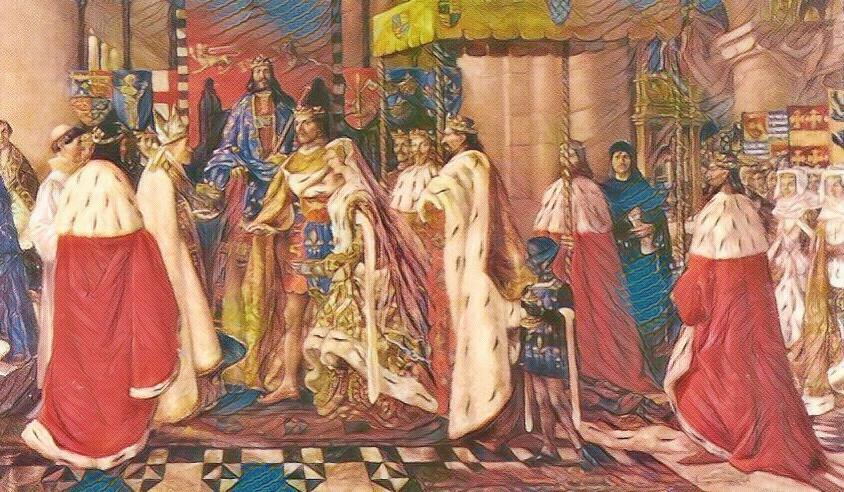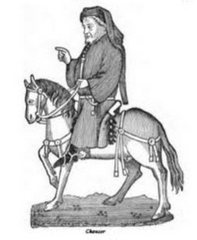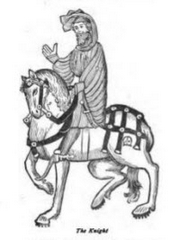The Book of the Duchess (also known as Chaucer's Dream)
This is a section about The Book of the Duchess, by Geoffrey Chaucer, also called Chaucer's Dream.

"The Book of the Duchess,” formerly known as Chaucer’s Dream, is the first major work of Geoffrey Chaucer. It was likely commissioned by John of Gaunt, to commemorate the death of his beloved wife two years earlier. The poem relates an allegorical dream about love and death. In addition to being Chaucer's first significant work, the Book of the Duchess was also one of the first works of literature composed in Middle English. The spelling is erratic, reflecting the fact that the language had not yet developed a fixed vocabulary or orthography, and is meant to be read aloud.
In the poem, Chaucer is lying sleepless in bed reading from a collection of old stories. Eventually he falls asleep and is transported to an enchanted mansion where a black knight is grieving over losing a game of chess. The Knight explains that he has played against Fortuna (the Roman Goddess of Fortune and Luck) and lost his Queen and been checkmated.
Failing to understand the metaphorical imagery, Chaucer entreats the Knight to cheer up and not to become so upset over a game of chess. The Knight explains that all of his life he has served Love, but that for many years his heart had not settled on any one woman, until he met the embodiment of perfection herself. Finally declaring his love, the Knight's beloved reciprocated his feelings and they were together for many years.
In the dream Chaucer has difficulty understanding what the Knight is getting at and finally asks where the white chess player is, to which the Knight replies that he is dead. Chaucer then awakens and decides to write down his dream. The poem does not offer a solution to the problem of grief and loss, merely acknowledges it. There are some parallels between Chaucer's Book of the Duchess and the Consolation of Philosophy, which he translated from Latin into Middle English.
Canterbury Tale Summaries

Geoffrey Chaucer

The Wife of Bath's Tale

The Miller's Tale

The Shipman's Tale

The Knight's Tale

The Summoner's Tale

The Pardoner's Tale

The Prioress's Tale

The Cook's Tale

The Monk's Tale

The Merchant's Tale

The Nun's Priest's Tale

The Franklin's Tale
Main Page | Site Updates | Privacy Policy | Site Map | XML Map | RSS | Contact | About
Canterbury Tales
